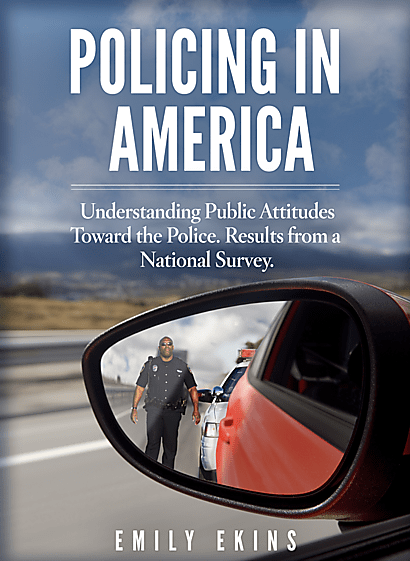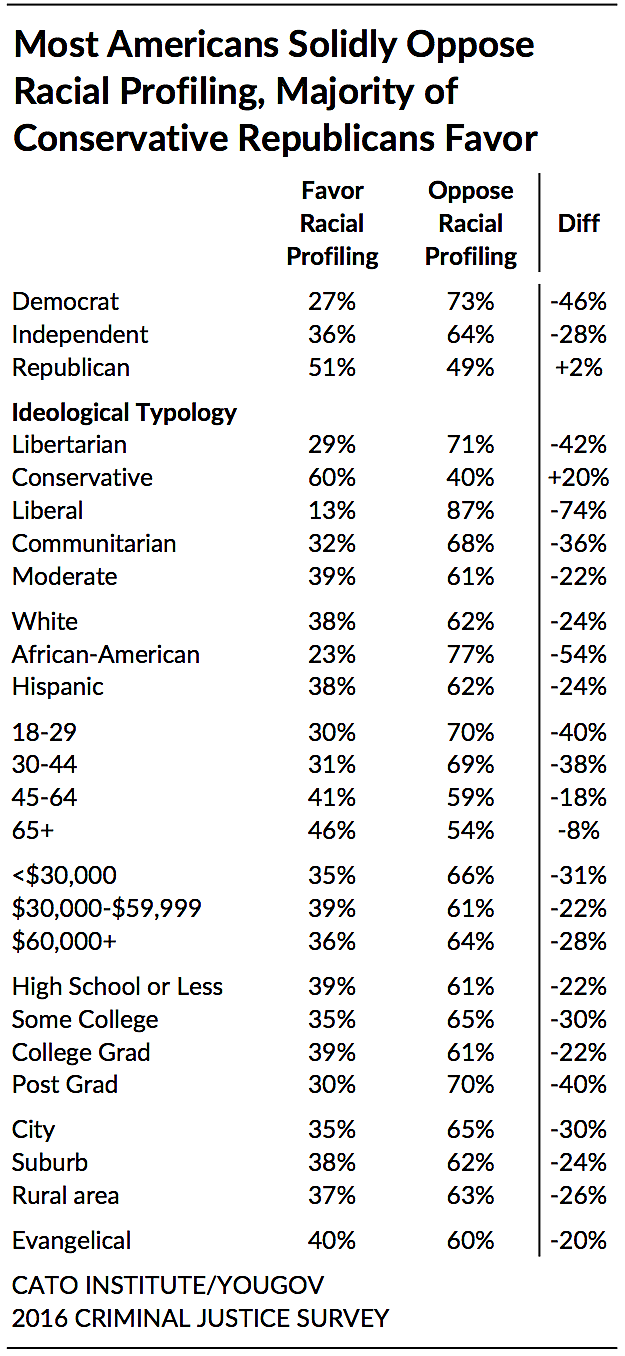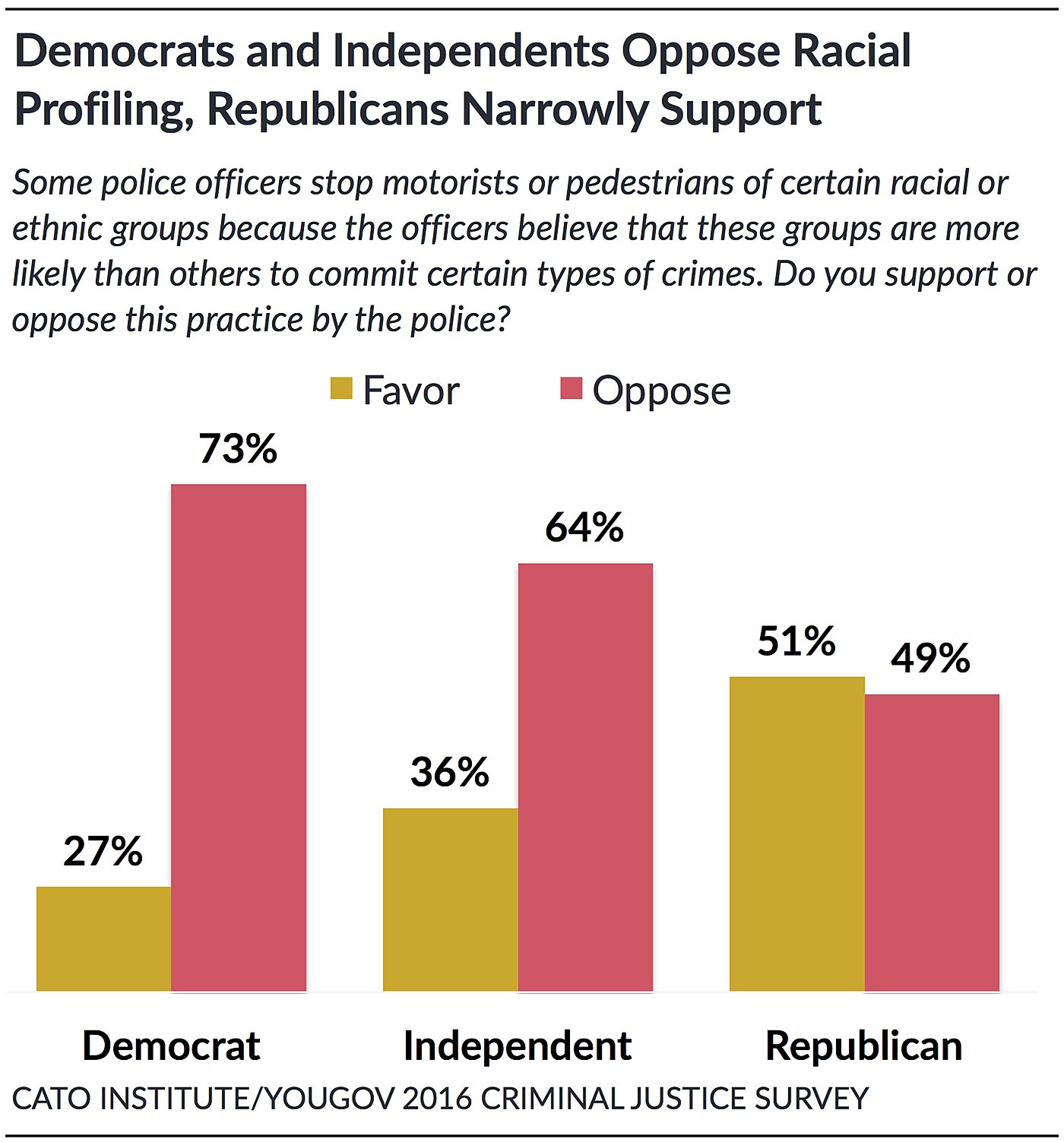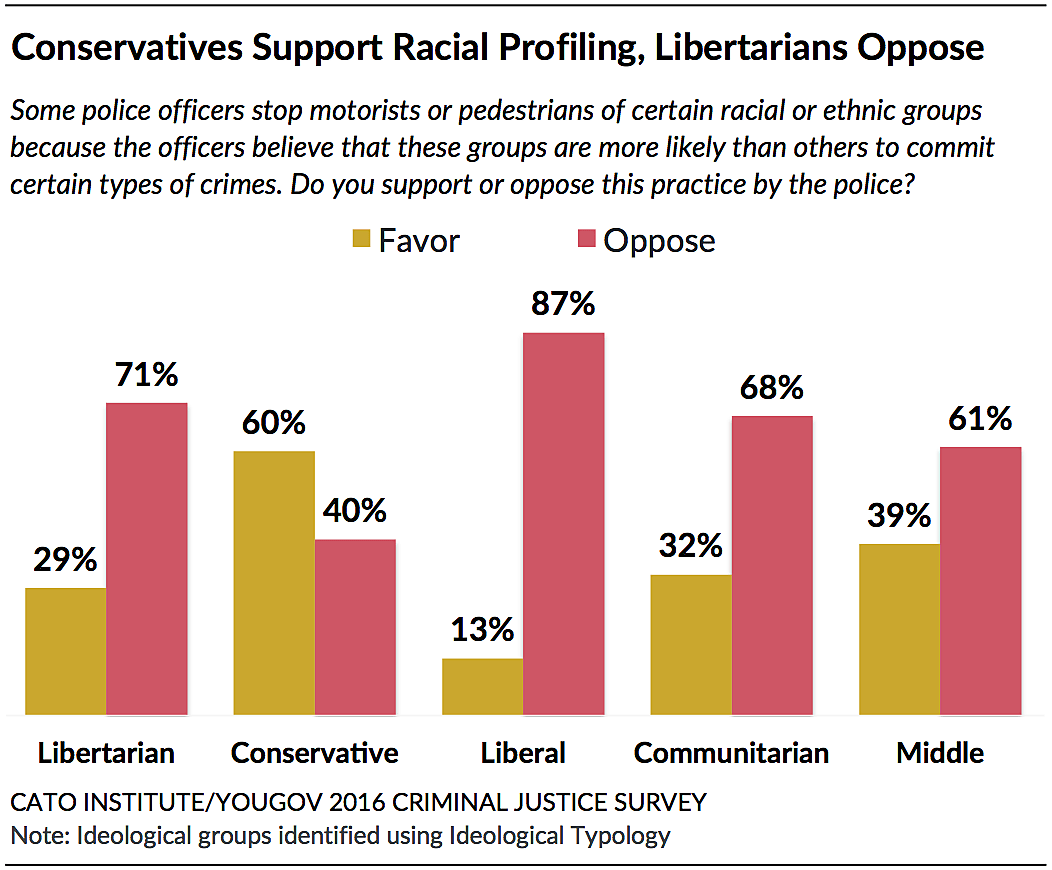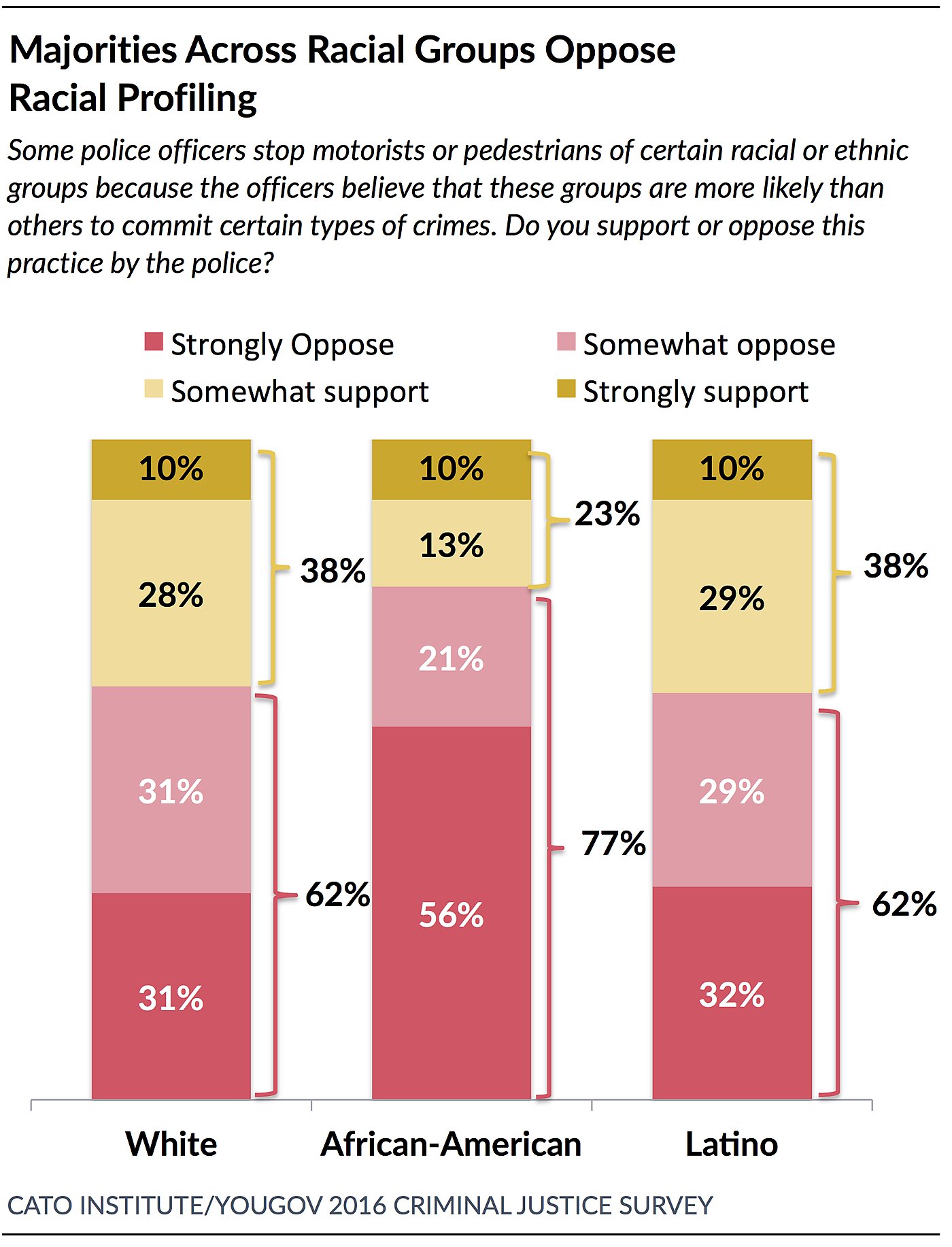Sixty-five percent (65%) of Americans believe police regularly “stop motorists and pedestrians of certain racial or ethnic backgrounds because the officer believes that these groups are more likely than others to commit certain types of crimes.” However, 63% of Americans oppose police using racial profiling for traffic and pedestrian stops, according to a new Cato Institute/YouGov national survey of 2,000 Americans.
Find the full public opinion report here.
An overwhelming majority of African Americans (81%) believe the police regularly racially profile, as do a majority of Hispanics (70%) and Caucasians (62%).
Democrats (80%) are considerably more likely than Republicans (53%) and independents (61%) to believe the police engage in racial profiling. Only respondents identified as ideologically conservative, according to our ideological typology, reach a majority (54%) who believe racial profiling does not commonly occur. In contrast, majorities of Liberals (87%), Communitarians (67%), and Libertarians (63%) think police routinely racially profile.
Most Americans Solidly Oppose Racial Profiling, but Slim Majority of Republicans Favor
Two-thirds (63%) of Americans oppose police officers “stopping motorists or pedestrians of certain racial or ethnic groups because the officer believes that these groups are more likely than others to commit certain types of crimes.” This percentage includes 34% who “strongly oppose” and 29% who “somewhat oppose” this practice. The remaining third (37%) support racial profiling, including 10% who “strongly support” and 26% who “somewhat support” it.
Partisans see profiling differently. A slim majority (51%) of Republicans support racial profiling while nearly as many (49%) oppose. However, Black Republicans differ from their fellow partisans: 65% oppose racial profiling and 35% support it.[1] Hispanic Republicans also oppose by a margin of 57% to 43%. A strong majority (73%) of Democrats and independents (64%) oppose it while roughly 3 in 10 support its use.
Conservatives Support Racial Profiling While Libertarians Strongly Oppose
A majority (60%) of Conservative respondents (identified according to our ideological typology) support racial profiling. In stark contrast, Libertarian respondents solidly oppose (71%) racial profiling, as do a majority of Communitarians (68%), Moderates (61%), and Liberals (87%).
African Americans are the most opposed to racial profiling (77%), although majorities of both Latinos (62%) and whites (62%) also oppose. Black Americans are also nearly twice as likely to “strongly oppose” (56%) profiling as Latinos and whites (31%). Latinos and Caucasians are not significantly different in their support for racial profiling.
Opposition to racial profiling is near universal across other demographic groups with strong majorities of men (61%), women (65%), evangelicals (60%), urban residents (65%), suburban residents (62%), high school grads (61%), college grads (64%), households earning less than $30,000 (66%), and households earning above $60,000 (64%) all solidly opposed to racial profiling. Millennials (70%) are more opposed than seniors (54%), but still majorities of both oppose. Overall, conservative Republicans stand out as uniquely supportive of police using racial profiling when deciding whom to stop.
Are Americans being honest about their feelings when it comes to racial profiling? Social scientists have developed a unique test called the “list experiment” to measure attitudes on sensitive topics. We included a list experiment on our survey and split survey respondents into two groups. The first group was asked “If you were a police officer, how many of these five factors do you think would be relevant when deciding who to stop and search for criminal activity? You don’t need to identify which ones, just HOW MANY:”
- Is acting strangely (fearful, agitated)
- Is making quick and secretive movements
- Is present in a high crime area
- Is male
- Is young
We offered the second group (the treatment group) the same list plus one addition item:
- Is black
When we compare the average number of items selected in the first group (Mean: 3.87 number of items) to the average number of items selected in the second group: (Mean: 4.29 number of items), the difference is .42. This indicates that 42% of Americans think that race should be a factor when police decide whom to stop and search and 58% think it should not be a factor . This is remarkably similar to the 37% who supported racial profiling and 63% who opposed when asked directly. The list experiment method found that 53% of Republicans felt that race should be a factor when police decide who to stop, as did 40% of independents, and 34% of Democrats. These numbers are very similar when partisans were asked about racial profiling directly.
In sum, these results indicate that when Americans say they oppose racial profiling, they seem to mean it.
For public opinion analysis sign up here to receive Cato’s upcoming digest of Public Opinion Insights and public opinion studies.
The Cato Institute/YouGov national survey of 2000 adults was conducted June 6–22, 2016 using a sample drawn from YouGov’s online panel, which is designed to be representative of the US population. YouGov uses a method called sample matching, and restrictions are put in place to ensure that only the people selected and contacted by YouGov are allowed to participate. The margin of sampling error for all respondents is +/-3.19 percentage points. The full report can be found here, toplines results can be found here, full methodological details can be found here.
div[1] Data about support for racial profiling by race and partisanship come from the combined June 2016 and November 2015 national surveys (N=4000), which offer greater precision and smaller margins of error for subgroups. (Unweighted: Black Republicans=45.)
